by Alexander Tuschinski, March 2016
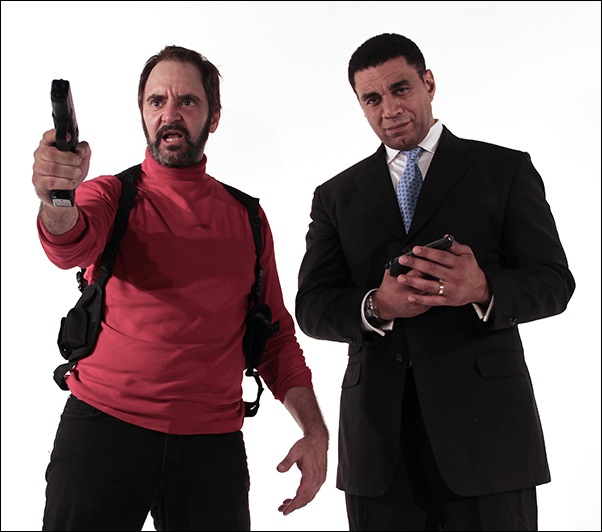
As pre-production of Revolution! is about to begin, some people have asked about its connection to my films Menschenliebe and Timeless. Indeed, the three films together form an informal Trilogy of Rebellion for me. Although they are independent of each other, they are three iterations of the same thoughts and ideas and feature the characters of Arnold and Konstantin as the main protagonists. Rebellion is not meant in a specific political context; I rather define it as a complete absence of any fixed thoughts that many people easily get entrapped in; a dis-satisfaction with any status quo, a dis-regard of authorities that are only "authorities" because you are supposed to regard them as such. It's rebellion in the context of daily life - to really use all freedom society has to offer without necessarily breaking its laws.
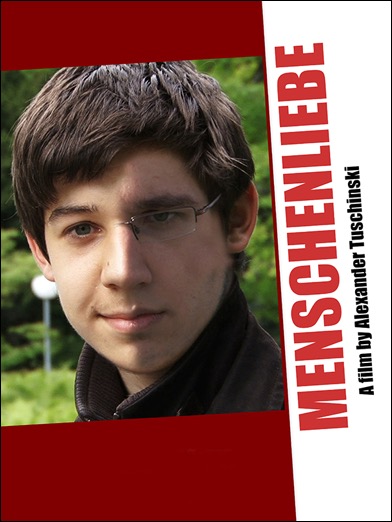
Menschenliebe, which I envisioned and directed in 2009, deals with social conventions on the smallest scale: Human interactions while dating. I always do films about the topics I find interesting at the moment, and as my focus shifts and broadens, my films contain more and more elements. Menschenliebe is the "seed" from which my other works grew, so to say, an "overture". It already contains most if not all motifs that will be elaborated in later films, but in a more basic form. To this day, I am incredibly proud of Menschenliebe - the sheer energy and dedication I put into this film will always give it a special place in my heart, and it will probably always be among my best works. It has a rebellious attitude already: Everything goes, social conventions must be forgotten in order to really find fulfillment in life. During screenings, I was initially surprised that some people got very aggressive and provoked by the film - I didn't see it breaking social rules while writing. But in that film, topics outside of dating and personal relations are rarely mentioned explicitly and more hinted at. They get more explicit in the next installments of the trilogy:
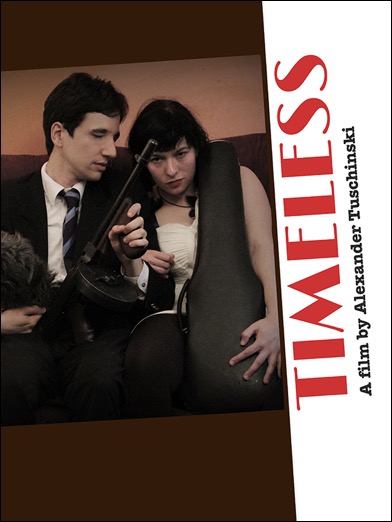
Timeless, in my opinion, is a highlight of the trilogy. This film features many scenarios and ideas, it offers enough spectacle for audiences to be drawn into it even during casual viewing; from WW2 battles to smashing cars, the film features visuals and expensive action unlike any other of my films so far. Its international cast is wonderful - many actors from my previous films worked on it again, in addition to some of the finest international actors you can find. Harry Lennix, Rick Shapiro, Helmut Berger, Angus Macfadyen, Zachi Noy and others make this the first truly international installment of the trilogy. Structure-wise, I regard Beethoven's symphonies as ideal artworks: They are appealing from the "outside" to casual listeners, offer "nice melodies“, and as you dig deeper, there are still many complex aspects that satisfy. To understand my works, it is best to keep my admiration of Beethoven's approach in mind - I want to make my works accessible, but at the same time give them a deeper meaning that invites repeat viewings. I feel Timeless succeeds in this regard even more than Menschenliebe. For the first time in the Trilogy of Rebellion, we get "solutions" to society's problems in Timeless - radical ones, but they are offered to the viewer. Society is viewed as a whole - all aspects mentioned in the previous films are shown in the beginning, plus many new ones.
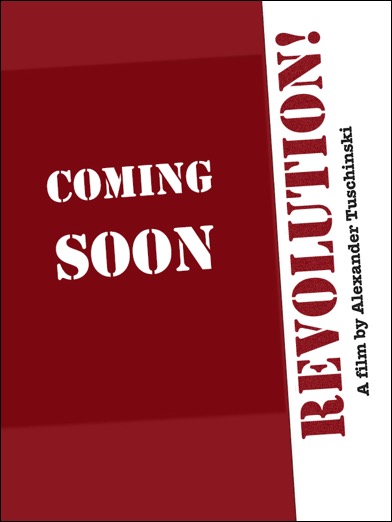
Revolution! is the finale to the trilogy. I originally wrote it in 2010, right after Menschenliebe, but decided to put it aside back then as I wanted to try new production methods for my film Break-Up. After filming Timeless, however, I feel time is right for my most radical film so far. Revolution! again features the characters of Arnold and Konstantin – but in a different constellation than before: Arnold is an experienced womanizer tired of all the boring people around him – while Konstantin is even more Mephisto-like than before, introducing his friend to more and more "strange" people from all walks of society, bringing chaos to their lives. The "revolution" in the film’s title actually refers to Arnold’s inner revolution – how he gradually breaks away from all social conventions to find individual freedom. Breaking away from political ideologies, religions and sexual repression, Arnold finds himself truly free in the end – which ends the Trilogy of Rebellion in a very strong and radical manner as he liberates himself from everybody - including his alter ego Konstantin. The film is highly different from Timeless, and its spirit closer to Menschenliebe, as it was originally meant as a direct sequel to my first film. The way it stands, however, I feel is ideal: The closing film of the trilogy again is similar to the first one in spirit, making the trilogy go full circle in the end. In Menschenliebe, Arnold created Konstantin to cope with life. In Revolution! he learns how to be fully independent and individualistic.

The Trilogy of Rebellion includes one core message: Be happy, stay positive, do not let the outside world drag you down - no matter how harsh the situation is. Many people confuse being "mature" and "grown up" with being "frustrated". One underlying feeling in Timeless is frustration and ways out of it - many people spend their lives doing a job they find frustrating. They spend their evenings drinking alcohol to numb their frustration and constantly suppress their feelings to be able to "function" in society even if it slowly erodes them from the inside. Timeless wants to burst out of this, exposing many convenient little lies that make frustrating lives easier to bear. It is more difficult to work on oneself to be truly happy than to simply lie to oneself and stay in established patterns. But it's worth it. The film is an invitation to break out of fixed patterns to find true self-expression - no matter how you are judged by small minds around you: Many are scared being exposed to people living true freedom as it scars their lies of living a free life. Technically, Timeless is probably my most sophisticated work so far; we did wonderful cinematography, had a big international cast and found many interesting sets thanks to wonderful supporters. As a filmmaker, I got to try many new visual and narrative ideas in the film. Its structure is still experimental, but at the same time more accessible than Break-Up. Probably, Timeless is my best film so far – and I am looking forward to give the trilogy a proper ending with Revolution!
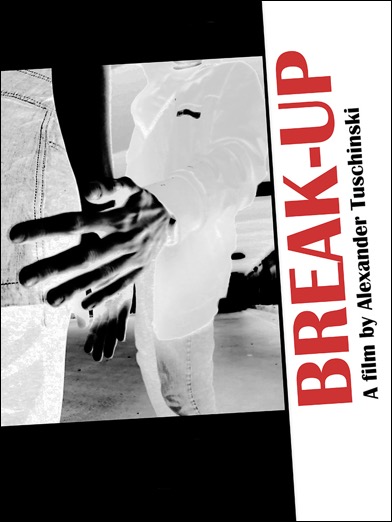
Break-Up – filmed between Menschenliebe and Timeless – is a smaller side-project, not a part of the Trilogy of Rebellion, but highly interwoven with it. It again features Arnold Richter as a main character – but Konstantin is nowhere to be found and its style is very different from the trilogy. The film is highly rebellious both in form and content. Again, it shows individuals’ struggles to be "free" in a society that offers many pre-made systems to divulge in. This time, it shows religion and politics as important factors that entrap people and deals with dating and relationships on the side. In the end, only the "free thinker" who moves outside the systems is shown as truly "free". In Break-Up, there are only followers and bad leaders - next to a few true individualists. I do have mixed feelings about this film: I'm incredibly proud of its cinematography, editing and acting; the dialogues are spot-on, the actors did a fantastic job. But its highly experimental structure from the beginning made Break-Up less accessible than Menschenliebe, Timeless or Revolution! It was the intention from the beginning to make Break-Up a "challenge" for the viewer by throwing all narrative conventions overboard. But this naturally limits its target audience and the impact it has on society and the viewers. It is not based on much "spectacle", but rather on dialogues and interesting cinematography/editing. People who like Break-Up need to be open to radically new concepts - meaning they probably already agree with the film's message from the beginning.
Many thanks to all friends who made the Trilogy of Rebellion possible. To all the actors and helpers who participated - some in one of the films, but many even in all three. I am grateful to everybody who participates and helps. Without your help, encouragement and patience this trilogy would never have been possible. Thank you all!